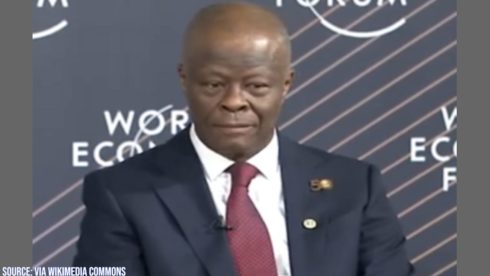According to Mr. Wale Edun, the Minister of Finance and Coordinating Minister of the Economy. Speaking in Lagos, Wale Edun announced that the federal government has ceased utilizing the Central Bank of Nigeria (CBN) to finance its domestic and foreign debt obligations. This move marks a departure from a system that allowed the government to borrow directly from the CBN, often leading to the excessive printing of money.
Wale Edun emphasized the importance of this exit, stating that it signals a shift towards more sustainable financial management practices. By moving away from the direct financing model, the government aims to reduce inflationary pressures caused by money creation and enhance overall fiscal discipline. This decision is expected to stabilize Nigeria’s macroeconomic environment, paving the way for more structured and prudent financial operations.
Establishment of World-Class Treasury and Liability Management System
Alongside the exit from Ways and Means, Minister Wale Edun revealed that the government is implementing a world-class treasury and liability management system. This system is designed to streamline Nigeria’s financial management processes, ensuring that the country meets its debt obligations efficiently and transparently. Wale Edun credited President Bola Tinubu for backing this initiative, highlighting its role in guiding Nigeria toward financial excellence.
This new treasury system aims to provide Nigeria with better oversight of its fiscal liabilities, improving debt servicing and reducing the risk of financial mismanagement. With this enhanced structure in place, the government seeks to optimize its revenue generation and allocation strategies, creating a more stable economic foundation for future growth.
Impact on Debt Servicing and Government Revenues
The end of Ways and Means financing is expected to have a profound effect on Nigeria’s debt servicing approach. By no longer relying on the CBN to cover its debt payments, the government is moving toward more sustainable debt management practices. This shift will likely lead to a reduction in inflationary pressures that often arise from money printing, thereby stabilizing the economy.
Wale Edun also pointed to the improving government revenues as evidence of the success of these reforms. With better financial management and increased revenue generation, the federal government is better positioned to meet its financial obligations without resorting to short-term, inflationary measures. The reforms are already yielding positive results, and this shift is expected to further strengthen Nigeria’s economic position.
Macroeconomic Stability and Positive Economic Indicators
Minister Wale Edun noted that the economy is showing signs of improvement, attributing this progress to the government’s recent reforms. He highlighted the stabilization of the exchange rate, improving trade balances, and increased government revenues as key indicators of Nigeria’s economic recovery. These positive developments suggest that the country is on the right track toward achieving long-term financial stability.
The reforms are not only benefiting Nigeria’s fiscal health but also improving its current account balances and overall economic performance. With a focus on sound economic policies and improved financial management, the government is positioning Nigeria to become a more competitive player in the global economy.
Reforms Are Yielding Results, Says Finance Minister
According to Wale Edun, the evidence of success from the government’s economic reforms is clear. The data, he said, demonstrates that the reforms are bearing fruit. The improved macroeconomic stability and positive financial indicators, including stable exchange rates and increasing trade balances, provide strong evidence that Nigeria’s economic trajectory is improving.
The minister emphasized that these reforms are part of a broader strategy to revamp Nigeria’s financial systems and ensure long-term sustainability. The focus on improved financial management, debt servicing, and revenue generation reflects the government’s commitment to transforming Nigeria’s economy.
A New Era for Nigeria’s Financial Management
The announcement of Nigeria’s exit from Ways and Means financing marks the beginning of a new era in financial management for the country. By implementing a world-class treasury and liability management system, the government aims to ensure greater fiscal responsibility and transparency. These reforms are expected to help Nigeria achieve a more balanced and stable economic environment.
As the country moves forward, the positive outcomes from these reforms are likely to be felt across various sectors of the economy. With a focus on improving financial management and reducing inflationary pressures, Nigeria is positioning itself for sustainable economic growth and development in the years to come.
Table of Contents
Discover more from OGM News NG
Subscribe to get the latest posts sent to your email.














